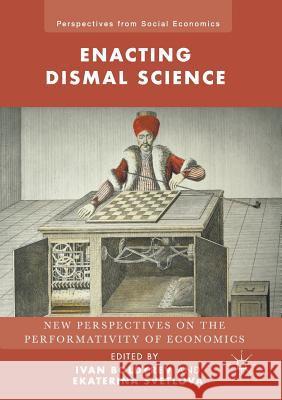Enacting Dismal Science: New Perspectives on the Performativity of Economics » książka
topmenu
Enacting Dismal Science: New Perspectives on the Performativity of Economics
ISBN-13: 9781349958429 / Angielski / Miękka / 2018 / 206 str.
Kategorie:
Kategorie BISAC:
Wydawca:
Palgrave MacMillan
Język:
Angielski
ISBN-13:
9781349958429
Rok wydania:
2018
Wydanie:
2016
Ilość stron:
206
Waga:
0.26 kg
Wymiary:
21.01 x 14.81 x 1.17
Oprawa:
Miękka
Wolumenów:
01
Dodatkowe informacje:
Wydanie ilustrowane











